BMW 7 Series VS Kia PV5 – Specs, Efficiency & Price Comparison
Which model is the better choice – the BMW 7 Series or the Kia PV5? We compare performance (571 HP vs 121 HP), boot capacity (540 L vs ), efficiency (1 L vs ), and of course, the price (101300 £ vs 33600 £).
Find out now which car fits your needs better!
The BMW 7 Series (Sedan) is powered by a Plugin Hybrid or Diesel MHEV engine and comes with a Automatic transmission. In comparison, the Kia PV5 (Cargo Van) features a Electric engine and a Automatic gearbox.
When it comes to boot capacity, the BMW 7 Series offers 540 L, while the Kia PV5 provides – depending on what matters most to you. If you’re looking for more power, you’ll need to decide whether the 571 HP of the BMW 7 Series or the 121 HP of the Kia PV5 suits your needs better.
There are also differences in efficiency: 1 L vs . In terms of price, the BMW 7 Series starts at 101300 £, while the Kia PV5 is available from 33600 £.
Compare all the key specs now and find out which model fits your lifestyle best!
BMW 7 Series
The BMW 7 Series represents the pinnacle of luxury and performance in the executive car segment, offering an unparalleled driving experience. Its elegant design combines aesthetic appeal with advanced technology, ensuring both comfort and connectivity for its passengers. With cutting-edge driver assistance systems, this flagship model showcases the brand's commitment to innovation and safety.
details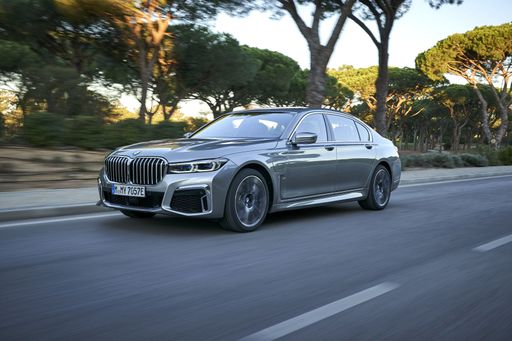 @ press.bmwgroup.com
@ press.bmwgroup.com
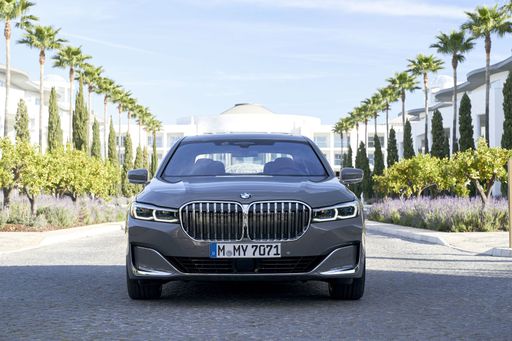 @ press.bmwgroup.com
@ press.bmwgroup.com
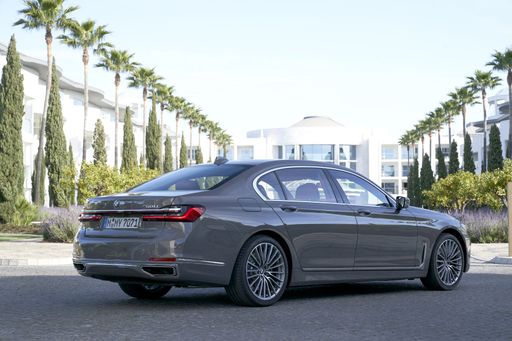 @ press.bmwgroup.com
@ press.bmwgroup.com
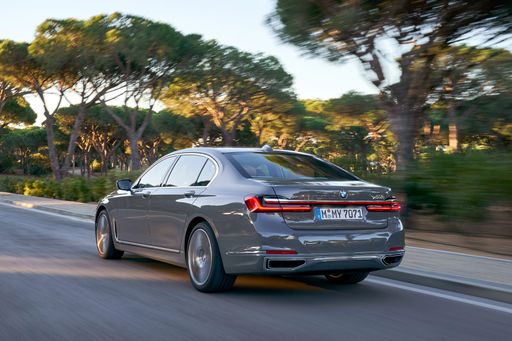 @ press.bmwgroup.com
@ press.bmwgroup.com
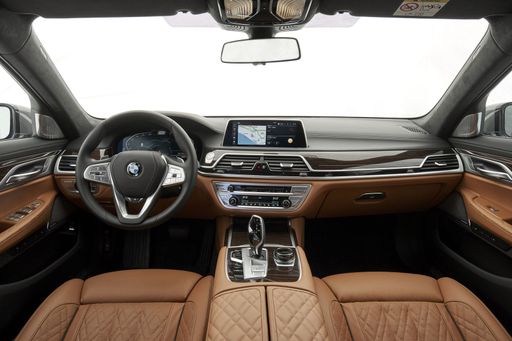 @ press.bmwgroup.com
@ press.bmwgroup.com
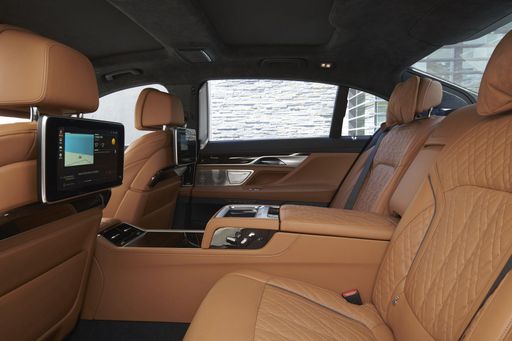 @ press.bmwgroup.com
@ press.bmwgroup.com
Kia PV5
The Kia EV5 is an exciting new entrant in the landscape of electric SUVs, promising a blend of style and innovation that captures attention. It boasts a sleek and modern design that aligns with Kia's evolving aesthetic identity, blending practicality with eye-catching details. With its foray into the electric vehicle segment, the EV5 is set to offer a highly competitive option for those looking to embrace sustainable mobility without compromising on comfort or tech features.
details

|
|
|
|
|
Costs and Consumption |
|
|---|---|
|
Price
101300 - 127300 £
|
Price
33600 £
|
|
Consumption L/100km
1 - 6.1 L
|
Consumption L/100km
-
|
|
Consumption kWh/100km
-
|
Consumption kWh/100km
-
|
|
Electric Range
80 km
|
Electric Range
291 km
|
|
Battery Capacity
17.60 kWh
|
Battery Capacity
51.50 kWh
|
|
co2
23 - 160 g/km
|
co2
0 g/km
|
|
Fuel tank capacity
65 - 74 L
|
Fuel tank capacity
-
|
Dimensions and Body |
|
|---|---|
|
Body Type
Sedan
|
Body Type
Cargo Van
|
|
Seats
5
|
Seats
2
|
|
Doors
4
|
Doors
4
|
|
Curb weight
2255 - 2525 kg
|
Curb weight
-
|
|
Trunk capacity
525 - 540 L
|
Trunk capacity
-
|
|
Length
5391 mm
|
Length
4695 mm
|
|
Width
1950 mm
|
Width
1850 mm
|
|
Height
1544 mm
|
Height
1923 mm
|
|
Payload
605 - 665 kg
|
Payload
-
|
Engine and Performance |
|
|---|---|
|
Engine Type
Plugin Hybrid, Diesel MHEV
|
Engine Type
Electric
|
|
Transmission
Automatic
|
Transmission
Automatic
|
|
Transmission Detail
Automatikgetriebe
|
Transmission Detail
Reduction Gearbox
|
|
Drive Type
All-Wheel Drive
|
Drive Type
Front-Wheel Drive
|
|
Power HP
300 - 571 HP
|
Power HP
121 HP
|
|
Acceleration 0-100km/h
4.3 - 5.8 s
|
Acceleration 0-100km/h
16.30 s
|
|
Max Speed
250 km/h
|
Max Speed
135 km/h
|
|
Torque
670 - 800 Nm
|
Torque
250 Nm
|
|
Number of Cylinders
6
|
Number of Cylinders
-
|
|
Power kW
220 - 420 kW
|
Power kW
89 kW
|
|
Engine capacity
2993 - 2998 cm3
|
Engine capacity
-
|
General |
|
|---|---|
|
Model Year
2023 - 2024
|
Model Year
2025
|
|
CO2 Efficiency Class
B, F
|
CO2 Efficiency Class
A
|
|
Brand
BMW
|
Brand
Kia
|
BMW 7 Series
Introduction to the BMW 7 Series
The BMW 7 Series has long been synonymous with luxury, performance, and cutting-edge technology. The latest versions continue this tradition, integrating sophisticated hybrid technology with distinguished design and powerful performance. Whether cruising the motorway or navigating urban landscapes, the BMW 7 Series offers an exceptional driving experience.
Technical Specifications
The 2023 BMW 7 Series boasts a range of impressive specifications and features. The engine options, which include both diesel mild-hybrid and plug-in hybrid variants, provide flexibility for different driving needs. With power outputs ranging from 300 PS to a remarkable 571 PS, the 7 Series does not compromise on performance. Coupled with intelligent all-wheel drive and an automatic transmission, it assures smooth and responsive handling.
Fuel efficiency is another highlight, with the series achieving consumption figures as low as 1.1 L/100km for the plug-in hybrid models, showcasing the brand's commitment to sustainability without sacrificing performance.
Advanced Hybrid Technology
The integration of mild-hybrid and plug-in hybrid systems into the 7 Series marks a significant advancement in BMW's pursuit of greener motoring. The plug-in hybrid variants, with a battery capacity of 18.7 kWh, offer an all-electric range of up to 79 km - ideal for city driving. This hybrid setup not only reduces emissions but also enhances acceleration, delivering a swift 0-100 km/h time ranging from 4.3 to 5.8 seconds.
Luxury and Comfort
The BMW 7 Series epitomises luxury, featuring an interior designed for comfort and convenience. Standard equipment includes high-grade materials, advanced connectivity, and cutting-edge infotainment systems. The cabin is spacious, with ample room for five passengers and a generous boot capacity of up to 540 litres, ensuring that long journeys are as comfortable as they are efficient.
Safety and Innovation
Safety remains paramount in the BMW 7 Series, with an array of features designed to protect occupants and enhance driving confidence. This includes state-of-the-art driver assistance systems, which provide support in various driving conditions, thus ensuring a safer driving experience.
In conclusion, the BMW 7 Series stands as a testament to automotive innovation, blending traditional luxury with modern efficiency and performance. It's a fine choice for those who seek the pinnacle of automotive engineering and technology.
Kia PV5
A Fresh Perspective on Cargo Vans: The Kia PV5
The Kia PV5 stands as a beacon of innovation in the realm of electric cargo vans. Known for its forward-thinking design and practicality, this model sets a new standard in its class. The PV5 combines cutting-edge technology with an eco-friendly design, redefining the expectations for businesses seeking sustainable transportation solutions.
Electric Power Meets Efficiency
At the heart of the Kia PV5 lies an advanced electric powertrain. The model is equipped with a 51.5 kWh battery, offering an impressive electric range of 291 km on a single charge. This robust power supply pairs with a front-wheel-drive system powered by an electric motor that delivers 121 HP (equivalent to 89 kW), keeping the operations both smooth and efficient.
Sustainability Without Compromise
The commitment to sustainability is evident in the PV5’s zero emissions, with a CO2 output of 0 g/km. The van maintains a CO2 Efficiency Class of A, clearly demonstrating Kia’s dedication to reducing the environmental impact of its vehicles. Businesses adopting the PV5 can confidently promote their green credentials while benefiting from the cost savings associated with electric driving.
Designed for Modern Business Needs
The Kia PV5 Cargo L2H1 Electric Automatic model is engineered for functionality and ease of use. Its spacious design accommodates two seats and offers a generous cargo area, making it perfect for diverse delivery needs. The van spans 4695 mm in length, 1850 mm in width, and 1923 mm in height, providing ample space to maneuver goods with ease.
Performance and Practicality
In terms of performance, the PV5 boasts a torque of 250 Nm and can accelerate from 0 to 100 km/h in 16.3 seconds. While its top speed is capped at 135 km/h, this is more than sufficient for urban and suburban delivery routes. The reduction gearbox ensures smooth transitions as it navigates through daily tasks.
Safety and Innovation
Safety is not compromised with the Kia PV5. It features a suite of safety technologies that support the driver in maintaining control and avoiding incidents. These innovations not only contribute to the safety of the driver and cargo but also offer peace of mind to businesses that prioritize the wellbeing of their workforce and goods.
The Road Ahead for Kia PV5
As the automotive industry continues to move towards electrification, the Kia PV5 exemplifies how cargo vans can adapt to this change seamlessly. It represents an essential step towards more sustainable business operations, providing a viable and efficient option for companies looking to reduce their carbon footprint while enhancing operational efficiency. The Kia PV5 is more than just a vehicle; it’s a strategic asset for any forward-thinking business.
The prices and data displayed are estimates based on German list prices and may vary by country. This information is not legally binding.
